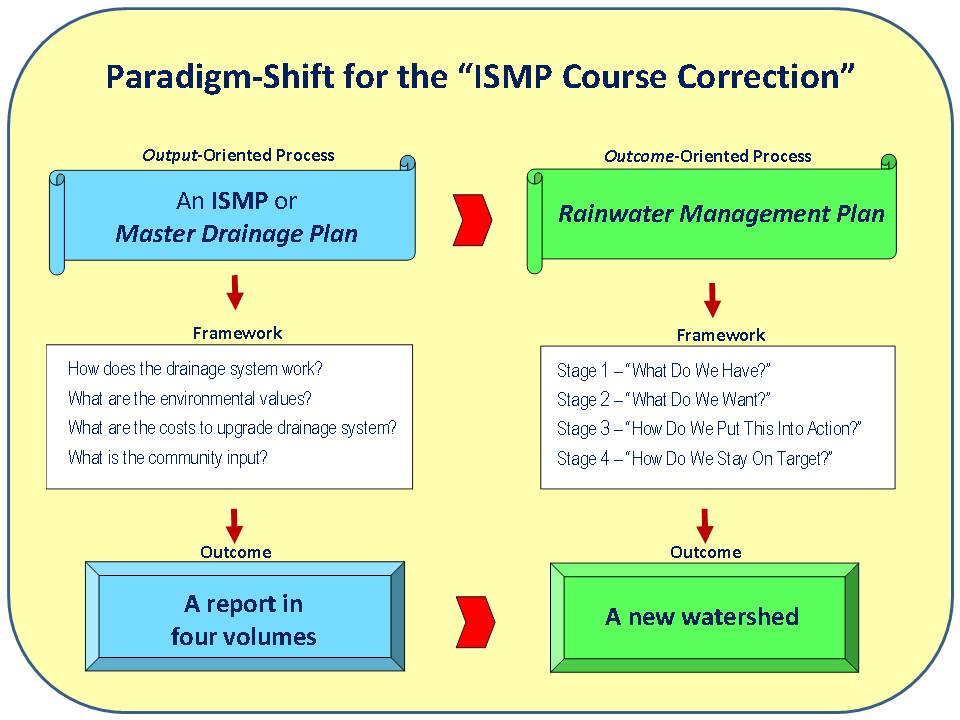“ISMP Course Correction” will help Metro Vancouver municipalities fulfil regulatory commitments and “achieve more with less”
Requirement for Watershed Planning
In May 2010, the Metro Vancouver region adopted a comprehensive and holistic strategy for managing liquid discharges and rainwater resources. By 2014, for example, “municipalities will develop and implement integrated stormwater management plans (ISMPs) at the watershed scale that integrate with land use to manage rainwater runoff”.
 “Local governments bear the entire financial burden to stabilize and restore watercourses impacted by increased rainwater runoff volume after land is developed or redeveloped to a higher density. The resulting unfunded ‘infrastructure liability’ is a driver for the ISMP Course Correction,” states Kim Stephens, Executive Director for the Partnership for Water Sustainability in British Columbia. He also chaired the Metro Vancouver Reference Panel.
“Local governments bear the entire financial burden to stabilize and restore watercourses impacted by increased rainwater runoff volume after land is developed or redeveloped to a higher density. The resulting unfunded ‘infrastructure liability’ is a driver for the ISMP Course Correction,” states Kim Stephens, Executive Director for the Partnership for Water Sustainability in British Columbia. He also chaired the Metro Vancouver Reference Panel.
Professional Development Program
At the 2011 Water Balance Model Partners Forum hosted by Metro Vancouver, we announced that we will be proceeding with a professional development program that will help municipalities in Metro Vancouver and beyond implement the ISMP Course Correction. The experience and wisdom of local government champions who have develoepd precedent-setting watershed plans will provide the curriculum backbone for a 2-day course.”
“The course on the ISMP Course Correction will guide participants through a 4-stage process for developing a balanced and holistic Rainwater Management Plan that is truly integrated. Participants will learn how they can draw on in-house resources, adapt the City of Surrey’s ISMP framework, apply the Bowker Creek approach (in the Capital Region) to watershed team-building, and embed the vision for a Watershed Landscape Restoration Strategy in land use planning processes.”
“The need for a ‘course correction’ was identified by the Metro Vancouver Reference Panel in our Final Report to the Metro Vancouver Board, released in July 2009. We were to the point with our recommendation: Re-focus Integrated RAINwater/Stormwater Management Plans on watershed targets and outcomes so that there are clear linkages with the land use planning and development approval process,” concludes Kim Stephens.
To Learn More:
To read the complete story posted elsewhere on the Rainwater Management community-of-interest, click on “ISMP Course Correction” will help Metro Vancouver municipalities fulfil regulatory commitments and “achieve more with less”. Alternatively, click here to download a PDF version of the story.
In addition, click on Water Sustainability Action Plan for BC releases “Summary Report for ISMP Course Correction Series”
Posted April 2011


